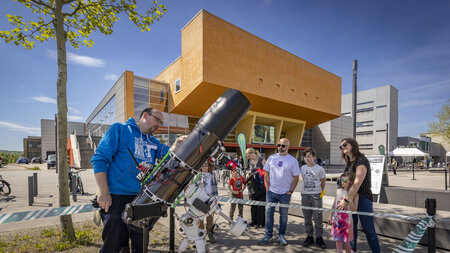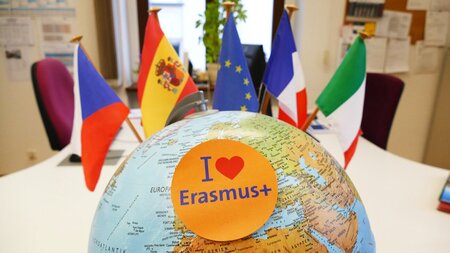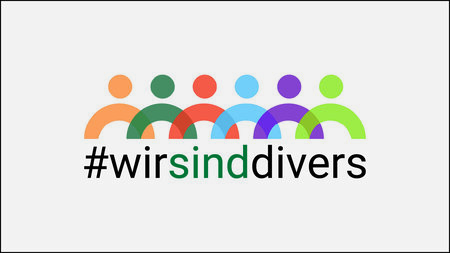Informatik-Kolloquien
347. Informatik-Kolloquium
Öffentliche Verteidigung im Rahmen des Promotionsverfahrens
Frau Mahda Noura, M.Sc.
TU Chemnitz
Fakultät für Informatik
Professur Verteilte und selbstorganisierende Rechnersysteme
"Goal-Oriented End User Development of Web of Things Compositions"
Donnerstag, 16.01.2025, 09:00 Uhr, Straße der Nationen 62, Böttcher-Bau, A12.336 (alt: 1/336)
Alle interessierten Personen sind herzlich eingeladen!
Abstract
Internet of Things (IoT) devices have gained widespread adoption by end users due to their provided benefits. The recent emergence of the Web of Things (WoT) standard has further simplified access to IoT devices. Enabling end users, particularly those lacking technical expertise, to compose the behaviour of their WoT environments to meet their specific needs is desirable. However, this is complex due to the intrinsic characteristics of end users and WoT environments. End users are struggling to compose their WoT environments, primarily because of the required expertise, effort and time. This thesis conducts a systematic analysis of this situation, identifying three main problems that hinders end users from personalizing the behaviour of their smart environments. Insufficient support of interoperability, usability and usefulness are thethree main problems addressed in this thesis. A set of requirements is derived for a suitable Things composition development approach by end users and used to assess the state of the art in the WoT domain. Existing research in Things composition development exhibits shortcomings, particularly in providing dedicated approaches to enable end users to compose heterogeneous Things and facilitate useful functionalities in a usable manner.
This thesis proposes a solution to address the identified shortcomings and empower end users to compose their WoT environments, with a focus on interoperability, usability and usefulness. The proposed solution, called Goal-Oriented End User Development for Web of Things (GrOWTH) provides a holistic framework consisting constructive software engineering principles, formalisms, methods and tools for Things interoperability, end user interaction and Things composition. GrOWTH Things interoperability solutions address the problem of vendor- and technology dependent WoT systems by proposing a semi-automatic knowledge-based approach, allowing end users to personalize Things usage. The end user interaction solutions adopt a goal-oriented approach with a multimodal interface, facilitating more intuitive and natural interactions with WoT environments. Additionally, the Things composition solutions propose an AI planning-based approach for compositions development by lowering composition complexity and speeding up time-consuming activities for end users. The feasibility and applicability of these concepts are demonstrated through various evaluation experiments and empirical user studies. The thesis concludes with an evaluation based on requirements assessment and technical evaluation of the approach with the application scenario, accompanied by an outlook towards future research directions.





